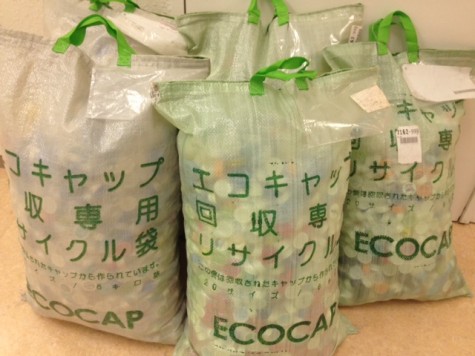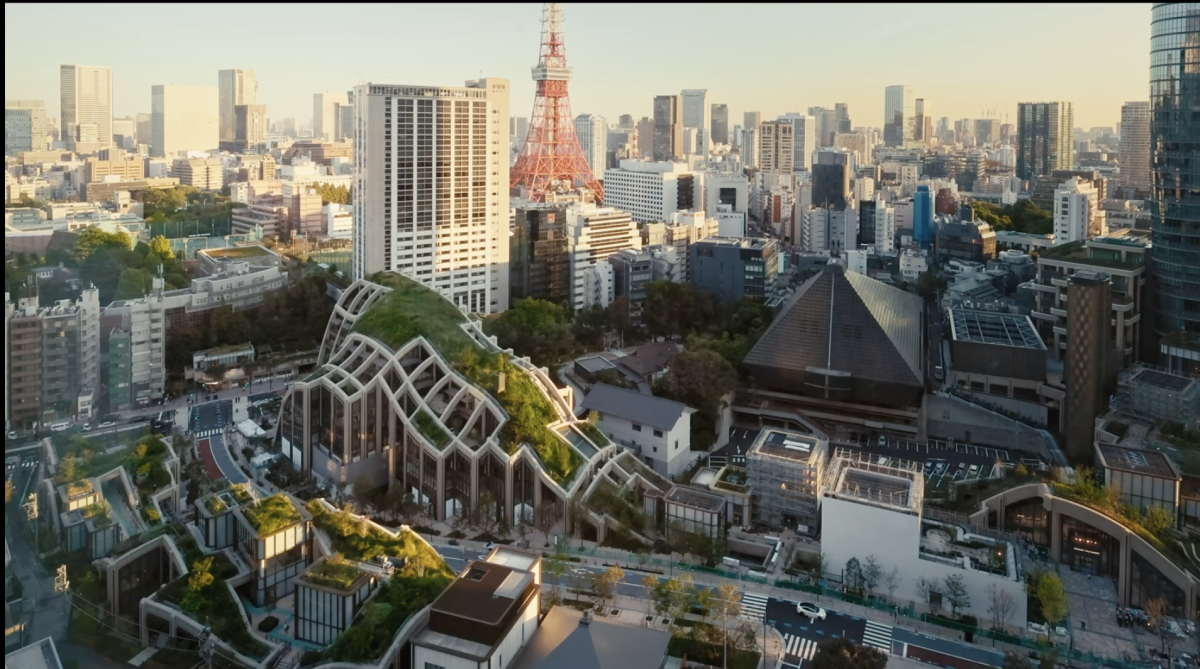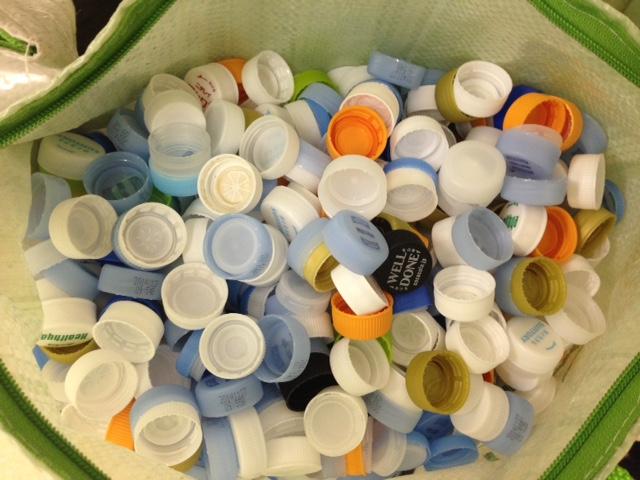Uncapping the truth
A bag of bottle caps worth one polio vaccine.
Have you seen all the boxes and plastic bags filled with bottle caps lying around the school? Have you ever wondered what they are collected for?
In a recent survey asking “Do you know where the collected bottle caps go or why we collect them?”, only two out of ten high school students answered correctly. Out of the eight that answered incorrectly, one responded that “they just sit there in the stockroom”. That is half true. However, only true until the Ecocap Movement comes to collect them from our stockroom. In fact, these seemingly worthless bags of bottle caps contribute significantly to not only preserving the environment, but also to aiding the health of children.
The Ecocap Movement is a non-profit organization (NPO) based in Yokohama, Kanagawa Prefecture. It promotes recycling, reduction of carbon dioxide emissions, and provides vaccines to children in developing countries. It was established in 2007 by some high school girls in Kanagawa. The movement started with the idea that “Throwing away used plastic bottle caps is mottainai (such a waste)!” according to the Ecocap website. The students came up with a system of selling used bottle caps to plastic recycling companies and donating the profits from the sales to the Japan Committee for Vaccines for the World’s Children. The Ecocap Movement has collected over 11.8 billion bottle caps so far, raising 114.6 million yen, thus paying for 5,730,195 polio vaccines for children around the world. The bottle caps are collected by schools, local community associations, and companies, then they are sent to the Ecocap Movement. The organization comes to collect the caps when at least 8 bags of 860 caps have accumulated.

Each bag contains over 800 bottle caps
There are four general benefits that entail with recycling and collecting the bottle caps.
Firstly, they can be recycled and remade into other plastic products. The caps are first turned into plastic pallets called “Ecoply”, then they are reshaped into other plastic products.
Secondly, the caps do not get combusted as they are recycled, thus they do not produce carbon emission, which is one of the driving factors of increasing climate change today. For every 860 bottle caps, 6.3 kg of CO2 emissions are cut. Today a massive amount of plastic bottles are used in Japan. Their caps are made from a plastic harder and stronger than the plastic of the bottles. Because of this, the caps and bottles cannot be recycled together. Plastic caps are usually mixed with other trash, causing the release of CO2 emissions in incineration plants or soil contamination in landfill projects. However, when they are collected separately from other trash, they can be recycled into plastic pellets and reused in products such as concrete panels, ballpoint pens, and chopsticks.
Thirdly, the process of recycling the caps provides jobs, such as sorting, for disabled people who are unable to be employed elsewhere.
Finally, the money made by selling them to recycling companies fund non-profit vaccination organizations and occasionally victims of natural disasters. Most of the profit is donated to the Japan Committee for Vaccines for the World’s Children (JVC) to provide polio vaccines to children. JCV is a non-profit organization started in 2007 that relies on donations from the Ecocap Movement. The Children’s Vaccine Initiative (CVI) ensures the immunisation of children around the world by distributing the vaccines paid for by JCV. Other vaccines that can be paid for by the organization, include measles vaccines (95 yen), BCG (vaccines against tuberculosis) (7 yen), Measles, Mumps, and Rubella (MMR) Vaccine (114 yen), and DPT vaccines (diphtheria, pertussis (whooping cough), and tetanus) (9 yen).
Organized by the Social Service Council, ISSH has been contributing to the Ecocap Movement for many years. This year 11,137 bottle caps have been collected so far, amounting in a donation that provides 13 polio vaccines to children.
Now that you know how much of an impact bottle caps have, the next time you buy a plastic bottle, don’t be hesitant to help the world one bottle cap at a time.

















































